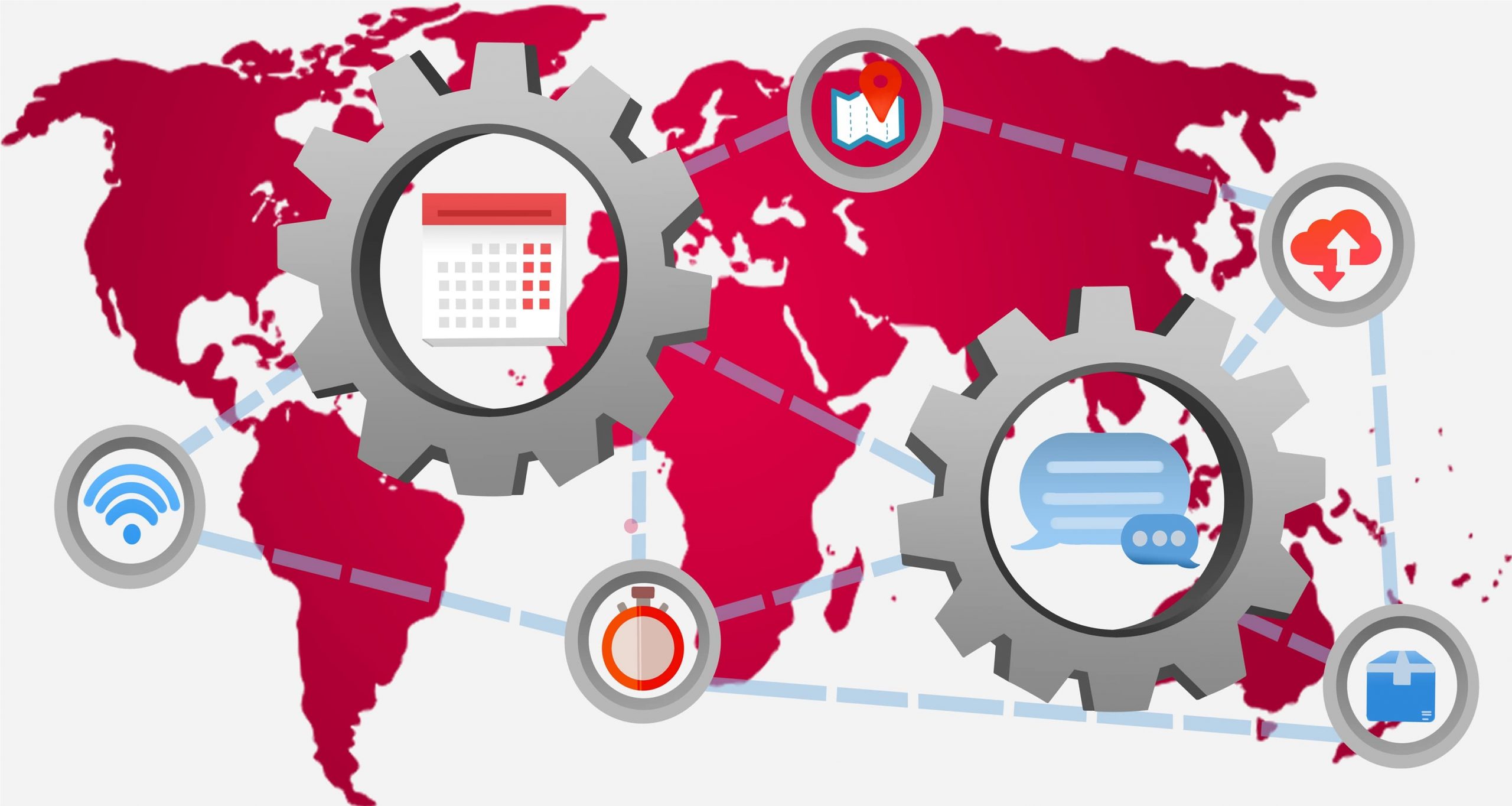Supply Chain Management is the bedrock of any logistics company, which works closely with the sales and manufacturing teams to deliver the right quantity of goods to the right place at the right time.
While you are selling less than 100 goods per week, SalesForce, FreshSales/FreshMarketer, and similar CRM systems should be enough to deliver outstanding services. But what happens when you decide to scale or already sell hundreds, if not thousands of goods through different channels?
Well, the forecast looks bad. Your logistics will start to suffer. Then production and delivery. Then ROI.
Proven Solution? Get Dynamics 365 Supply Chain Management.
D365 Supply Chain Management is a single source of BI that drives productivity through the whole process, from shipment to delivery.
The functionality of D365 SCM boosts organizations’ efficiency with a streamlined process that optimizes supply chain through its benefits:
- Real-time visibility and scheduling by using a financial management module;
- Manufacturing flow optimization and manufacturing parameters for each product;
- Predictive Intelligence to improve product quality.
What else would you need? As if you have a headache, and the Microsoft team gives some paracetamol.
Functionality: introducing D365 SCM Modules.
Price rating
Gather data from various sources (e.g., account book, representation) for further examination and summarization. Evaluation of price data helps management teams to supervise prices, capitals, and costs.
Price organization
SCM’s price organization module assists teams with price policies definition when dealing with:
- Predetermined price;
- Inventory rating;
- Manufacturing rating;
- Indirect price rating;
- Ledger integration.
Apart from that, you also have more freedom when working with the valuation and rating of raw materials, semi-finished goods, finished goods, and work-in-progress assets.
Inventory/Depository organization
Helpful module to manage and perform tasks like inbound/outbound operations, standard assurance, inventory control, warehouse operations.
Each task has subtask in a hierarchy order:
- Inbound operations -> receive products -> put away items;
- Outbound operations -> prepare shipment and packaging operations -> pick items -> containerized products -> ship products;
- Quality assurance -> test products -> set products on hold;
- Inventory control -> define cost structure -> define prices and price structure -> close ivnentory -> adjust inventory -> recalculate inventory;
- Warehouse operations -> track warehouse activities -> optimize and maintain warehouse activities.
Master planning
Don’t you need planning? Of course, you do. Planning allows teams to be prepared for an organization’s future needs, and Master Planning does an excellent job when dealing with raw materials and capacity.
You may do even a step further and integrate the module with other ones in Finance like accounts payable, accounts receivable, production control, and others.
Procurement and sourcing
Manage the entire lifecycle of procurement from identifying a need for product/service to payment processing with vendors. Set up workflows to configure procurement processes to fulfill your specific business needs.
As an example, you may use purchase requisition review workflow to create, review and approve workflows for purchase requisitions; or vendor add application workflow to create, review and approve workflows for adding new vendors via vendor requests.
Vendor collaboration
The module helps external users to grant access to vendors’ limited information in regards to orders, invoices, and consignment stock to external vendor users.
Typical collaboration between an organization and vendor would be as follow:
- The vendor accepts -> Vendor response: Accepted -> PO status: In external review;
- Vendor rejects -> Vendor response: Rejected -> Rejection sent with vendor note;
- The vendor accepts with changes -> Vendor response: Accepted with changes -> PO status: In external review.
Product information management
While Supply Chain Management is the bedrock of logistics – Product information is the bedrock for supply chain and retail applications. The module allows users to manage information about products across the supply chain.
Consistent and accurate maintenance of product information is critical for any dynamic business.
A product includes standard information number, name, and description as well as unique data, like type or subtype, images, attachments, etc.
Production control
Production of products is a complex cycle of steps that have to be executed to complete manufacturing. It starts with the production order, batch order, or kanban and ends with the manufactured item.
Of course, each step requires a different kind of information to get to the final step. Production control module connects with other modules like Warehouse management, Product information management, General ledger, Inventory management, etc. to support information flow and complete manufacturing process seamlessly.
Intercompany trade
The module assists organizations with trade processes, setting up parameters on how to trade between different legal entities. For example, when dealing with sales orders or sales invoices.
Warehouse management
It allows you and your team to manage warehouse processes in distribution, retail, and manufacturing companies.
Here are some features you get with the module:
- Adaptable, incoming and withdrawing data workstream;
- Inventory properties control;
- Numerous picking plans of action;
- Withdrawing wave managing;
- Complete detectability of workers’ material handling;
- and many others.
Transportation management
Manage your transportation process by identifying vendors, routing solutions for inbound&outbound orders. The module assists you with finding the most efficient way to deliver goods to your customers.



